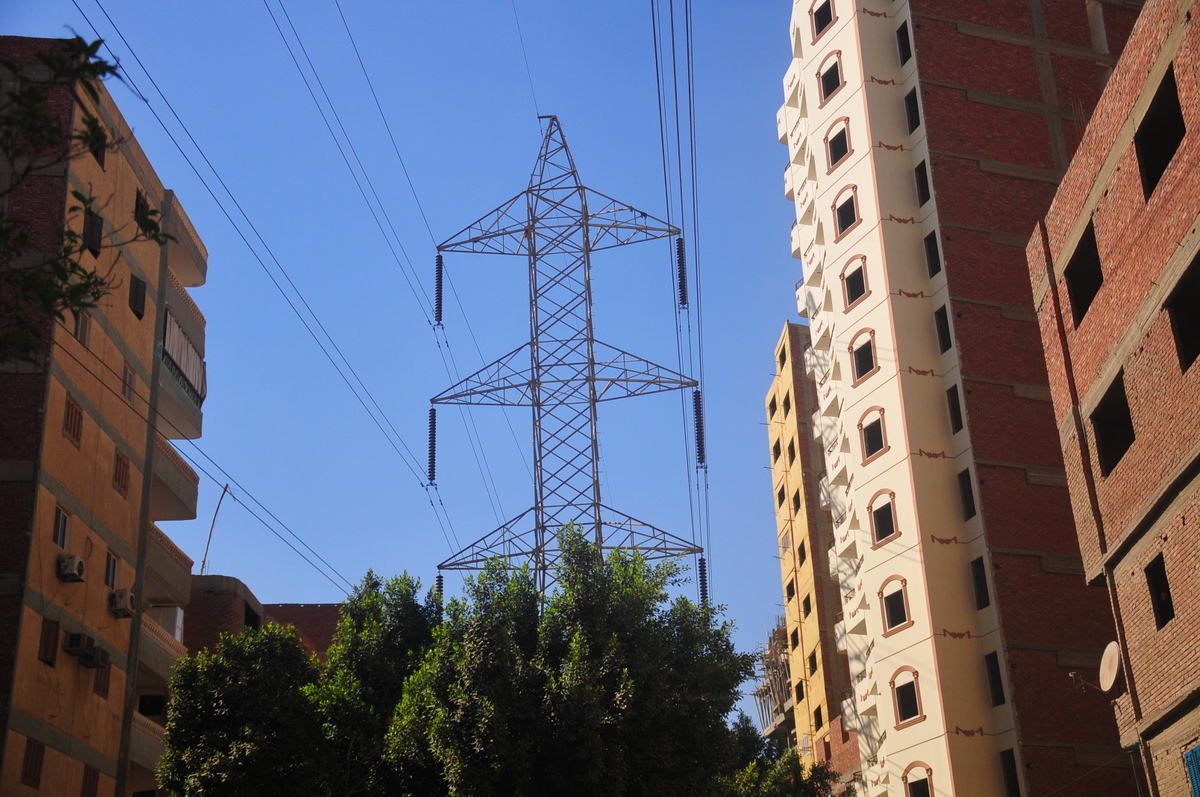CAIRO: Journalist and human rights activist Saed Ragab walks swiftly through the streets of downtown Cairo. We have to keep walking or they ll see me, he says. He turns left, then right, then left again when suddenly he ducks into a small café. While scouting the restaurant as though looking for someone, he makes eye contact with a man speaking on his mobile phone then quickly heads for the back patio. He s a lawyer, not the good kind, Ragab says. On the back patio, three uniformed officers are sitting together smoking shisha. He whips around and heads for a seat near the front door. I haven t been home in 9 days, he explains. Every day when I leave for work, I assume they ll be waiting for me to arrest me in the street or when I get home. I won t be of much use in prison with my friends. Mass arrests and violence marked the latest protest in solidarity with two judges disciplined for sounding the horn on election irregularities. Meanwhile, the judicial panel put together for the hearing of judges Hisham El-Bastawisy and Mahmoud Mekki have chosen to discipline only one of them. The disciplinary committee has decided that El-Bastawisy, who suffered a heart attack early Wednesday and was not present at yesterday s hearing, would be dismissed from the judiciary if he committed another offense. Mekki has been cleared of all charges. This is a political decision, just like the referral to the disciplinary committee, just like refusing to investigate elections fraud claims made by Mekki and Bastawisy, insists Gasser Abdel-Razek, an activist with the Egyptian Organization for Human Rights. Throughout this process, justice has not been served. The government doesn t want to postpone the hearing because they want to get it over with quickly before all the factions form an alliance in the streets, adds Mohamed Shaker Sinar, a Muslim Brotherhood parliamentarian from Kafr El-Sheikh. Protests in support of the judges have gained momentum by oppositionists, but they have equally been met by increased resistance by national security forces. At least 100 members of the Muslim Brotherhood were beaten and dragged away by police in Abassiya Square, and at least 50 other demonstrators were arrested in various locations elsewhere in the city. The Ministry of Interior reports at least 50 Muslim Brotherhood demonstrators were also arrested in the Nile Delta town of Shibin El-Kom. They would trap the protestors before they reached the meeting points, or when any groups got together randomly, explains Rabab El-Mahdi, an assistant professor of political science and a member of the Kefaya movement.
At least 255 people have been arrested prior to yesterday s protests. Muslim Brotherhood supporter Essam El-Arian, who spent five years in prison from 1995 to 2000, was taken into custody at yesterday s demonstrations, as was Mohammed Mursi, another prominent member of the banned Islamic group.
Alongside Talaat Harb Street yesterday, at least 20 parliamentarians affiliated with the Muslim Brotherhood, Egypt s largest opposition group, stood shoulder to shoulder, hand in hand, each of them wearing a black sash inscribed with the words: Parliament members are with the judges.
We are not here to protest, we are against protests, said Ibrahim Abou Ouf, a Muslim Brotherhood parliamentarian from the Mansoura district. The judges are an important element in this society.
Outside the courthouse shortly before 11am, the human barricade of riot police opened slightly to allow more than 50 plain-clothed police officers back out onto the busy street. Among them were a number of protestors who the group escorted down the vegetable-lined alleys of El-Towfia Market, then inside the Sultana Hotel. Just before the front doors of the hotel slammed shut, screams could be heard from inside.
On Talaat Harb there are halawayat [dessert] shops being used as a storage center, a jail, for the national security forces, insists Ragab. At the door of every building, inside every store, there are police waiting for anyone who tries to run. They need to understand, we will not keep quiet.
The case of El-Bastiwisy and Mekki has reignited calls for the resignation of Egypt s Interior Minister Habib El-Adly, who has been under fire for the government s handling of a number of internal security upheavals. The recent attacks on the Sinai resort town of Dahab, coupled with the renewal of the controversial Emergency Law, has riled up opposition groups more than ever.
Activists insist that now is the time to strike at the government. The Judges Club, which represents more than 8,000 judges in Egypt, has fought for years to win its independence from the executive branch of government. The group threatened to boycott last September s presidential elections, although a deal was struck within days of the vote. Absence of the judges could present a violation to the constitution as judicial supervision is required for any election. With popular support evident in the opposition s response to these disciplinary hearings, activists hope that yesterday s ruling will open the door for a judiciary overhaul.
It will all depend on the reaction of the judges, notes Abdel-Razek. Bear in mind that the articles used for the referral to the disciplinary committee are articles the judges are fighting to change. If they maintain their pressure on the executive branch to pass their version of the judicial authority law, we will not see this episode repeated.

